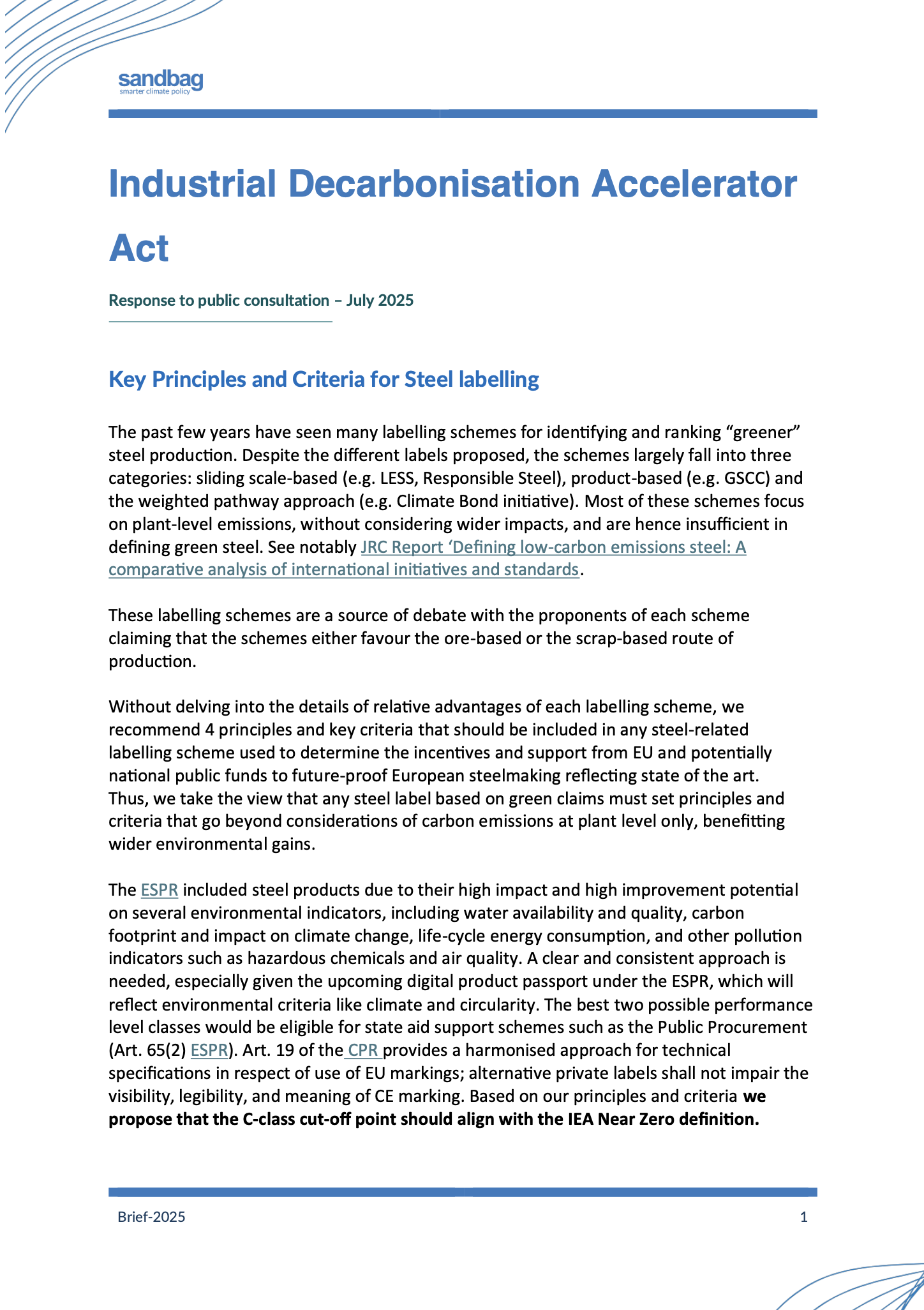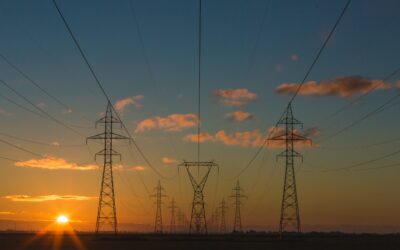Sandbag has submitted a response to the European Commission’s call for evidence on the Industrial Decarbonisation Accelerator Act (IDAA).
Our response sets out four principles to guide the development of credible green steel labels that support truly low-carbon production and avoid greenwashing.
To be effective, labelling must reflect full-system emissions and environmental impacts — not just reductions at plant level.

About the response
Sandbag’s response addresses concerns that emerging steel labelling schemes often rely on narrow or inconsistent metrics, risking poor alignment with EU climate goals. It recommends a set of common principles to ensure future steel labels drive real decarbonisation and can be used reliably in EU funding, procurement, and regulatory frameworks.
Key findings
Sandbag proposes four core principles for future EU steel labelling systems:
- Exclude fossil-based production routes
Steelmaking routes that rely on fossil fuels, carbon capture and storage (CCS/CCU), or fossil-based electricity should not qualify for the top tiers of any label.
- Support dynamic phase-out of high-emission classes
Labelling frameworks should progressively exclude the worst-performing routes, while incentivising the adoption of cleaner processes and inputs.
- Use forward-looking emissions criteria across full system boundaries
Categories should be based on lifecycle emissions and best available technologies — not historical EU ETS benchmarks — and include upstream impacts like methane leakage, as well as induced emissions from electricity use, which can vary depending on timing and location.
- Reward energy and feedstock efficiency
Labels should favour routes with lower energy input, direct electrification, scrap use, or hydrogen — with proper accounting for efficiency losses and imports.
Related publications
Dec 1st 2025
More on the Industry
The European Hydrogen Bank: a recipe for competitive distortion
Last Thursday, the European Commission published its Communication on the European Hydrogen Bank...
EU Criteria for Green Hydrogen: How They Could Increase Relience on Thermal Power and Hijack the Energy Transition
On February 13th 2023, the European Commission released two pieces of legislation to provide criteria defining renewable hydrogen products. The so-called Delegated Acts matter because they set out how to comply with other regulations under review which will force ships, aircraft and heavy industry to use a minimum content requirement of the fuel, such as the Renewable Energy Directive, REFuelEU Aviation and FuelEU Maritime.
Preventing double counting: Sandbag challenges methodology on green hydrogen (RFNBO).
Sandbag welcomes the opportunity offered by the European Commission to provide feedback on the...



